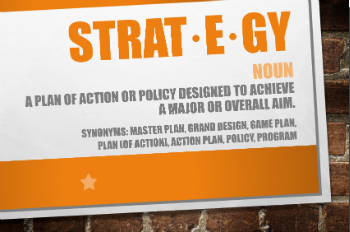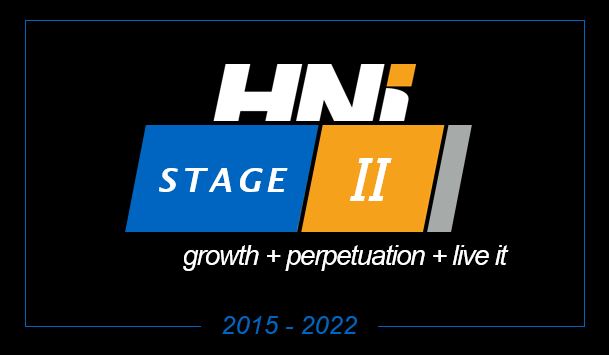 MIKE NATALIZIO
MIKE NATALIZIO
CEO of HNI
We like to work with organizations that are gamechangers — the kind that want to grow and that are willing to make changes and tough choices to achieve the future they envision.
This time of the year, many organizations are putting finishing touches on their strategic plans and laying out their project priorities for the year to come.
That part is easy — at least compared to what comes next. Getting an organization to execute on the goals that have been set? That’s where the great companies separate themselves from the pack and pull ahead.
Sharing Your Corporate Plan
Sharing corporate strategy with employees is no cake walk. There are difficult questions to wrestle with. What do you share? What should stay confidential? What do people even care about? How do you infuse some inspiration and get people excited about the direction the organization is going? This blog will explore some of those questions.
It Starts with Transparency
Phrases like “We don’t know what’s going on around here” or “the boss says it, I just do it” do not bode well for a corporate strategy.
An informed employee is an engaged one. Top talent wants to grow within an organization and know how and where they can bring value. Without transparency, they don't know what's going on, and they don't know how they fit in or where they can bring value.
If the information is locked down, it's going to be difficult for them to contribute to moving the needle on your goals (or even develop professionally.) While every organization is different, we recommend erring on the side of oversharing and going for the highest level of transparency possible. What is truly private in your company? And why? If it doesn’t need to be some big secret, throw it out there.
Our Natural Reaction: 'So, What Does This Mean to Me?'
Rule No. 1 of marketing: know your audience. This applies to employee communication as well — because in effect, you are “marketing” to them.
Gone are the days when employees expected to spend their career in one spot, and considered themselves lucky to just have a job. You are constantly “selling” your employees on the value of working for your organization, fighting bouts of “greener grass” syndrome and for some fields and positions, warding off droves of headhunters and recruiters.
When it comes to growth, employees want to know how this benefits them. The knee-jerk reaction of many when hearing growth goals is “wow, that sounds like a lot of work for me.”
Show that growth means opportunity for career advancement. Improved benefits and compensation. A chance to learn and try something new. For some, there is appeal in just knowing that your job will be around because you work for a well-run, financially healthy organization.
Your Success = Our Success
In addition to highlighting the upside of growth, make sure everyone on your team has some skin in the game. Corporate goals should trickle down throughout the organization, so each person has concrete, actionable objective that relate back to the big picture of success.
For example: If your company goal is to improve client retention, individual goals and metrics should be related to helping the organization achieve this.
Customer service:
Your customer service reps’ objective might be to engage in specific behaviors that encourage retention — like returning calls within 24 hours or reporting any service issues before they become a problem.
Sales:
The sales reps’ goal might be to schedule quarterly check in calls with all of their clients.
Marketing:
The marketing team’s goal might be to conduct a client satisfaction survey.
Trickle down goals related to corporate strategy are the secret sauce of alignment. In many cases, the pieces are there — what’s needed is just to connect the dots and articulate how this relates back to strategy.
Take the Next Step
How do you get the message out? Video, email, newsletter — any of these channels can work.
If this is new stuff for you, it’s okay to start small and just share bits and pieces of your results or company strategy. Start big, start small, but just start — and keep the message alive by refreshing and reinforcing on an ongoing basis throughout the year.
Let us know in the comments what steps you’re taking to share your corporate plan. What is working? What challenges are you facing? What has surprised you?
WALKING THE TALK: WHAT WE’RE DOING AT HNIOn our blog we like to share stories about what we’re doing at HNI. Not because we think we’re “SO GREAT”, but because we’re figuring out this stuff too — and we believe that an open and honest dialog can help us all build better businesses. Our goal this year is big, hairy and audacious: we want to double in size by 2022. We just wrapped up one of the best years’ in HNI history, and our employees achieved some milestones that we’re enormously proud of:
We’ve dubbed our goal to double [and the initiatives we’re undertaking to move the ball down the field] Stage 2. To communicate Stage 2 and the changes that come with it, we’re using the analogy of a rocket. Every rocket has a ‘booster stage” where you’re burning a lot of energy to achieve lift off. But once you get up into the atmosphere, you need another push to meet your desired trajectory. And some of the things that fueled you are no longer relevant. The initiatives involved in Stage 2 include:
As you walk through our offices this year, you’ll likely see sprinklings of communication related to this. We will continue to share progress and challenges we encounter through our blog! |
Related Posts:
Use Data-Driven Strategy to Unravel the Complexity of Your Business
Introducing a Game-Changing Duo: Our New Directors of Benefits and People
.png?width=69&height=53&name=Acrisure%20Logo%20(White%20Horizontal).png)

 MIKE
MIKE 
![Ready to change the game? [ LET'S TALK ]](https://no-cache.hubspot.com/cta/default/38664/30ca5e22-0848-4392-bb97-fb8581c3bd4f.png)
